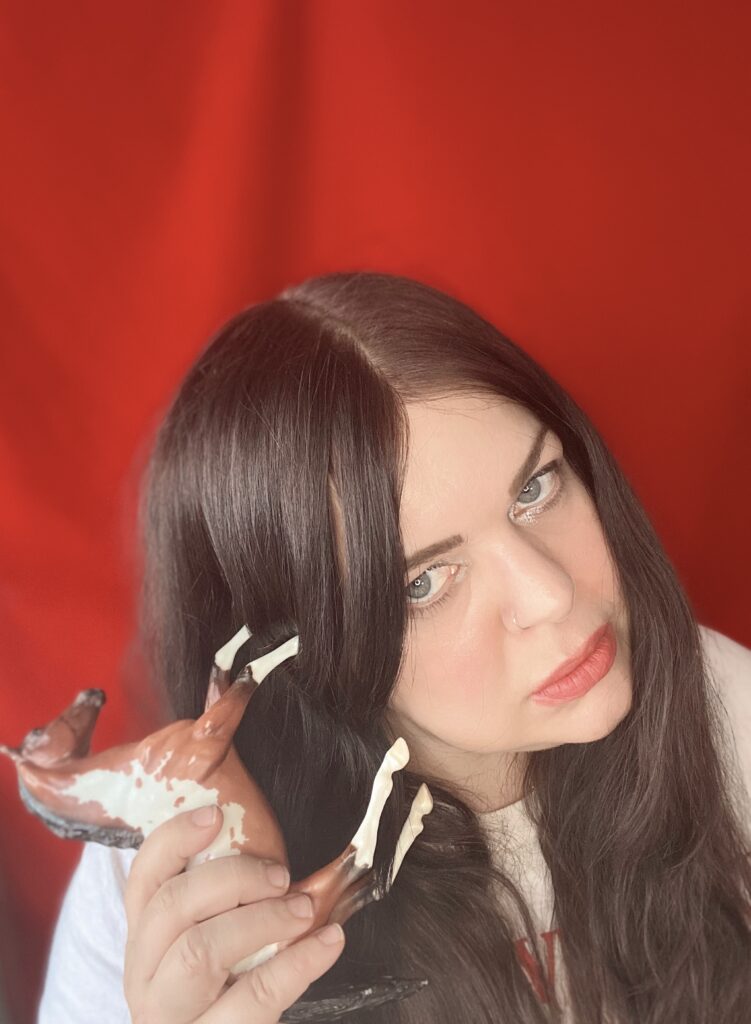Clotheshorse began as a podcast on a mission to pull back the curtain of glamour and mystery that obscures the real truths about the clothing we buy. After all, clothing is a basic need. It keeps us warm and protects us from the sun. Yet it can be an addiction, and certainly a way we show the world exactly who we dream of being. Shopping is both a hobby and a social activity, so it’s no wonder that the average American buys a new piece of clothing every 5.5 days! We spend so much money looking at clothes, buying clothes, and talking about clothes. Do we know the true price of our clothes? Who makes them? How are they made? The answers to these questions contain some very dark truths and many extremely toxic practices. Clotheshorse explores them all. Over time, Clotheshorse has evolved into an exploration of life in late state capitalism, from our experiences as workers to our relationship with consumerism.
From “fast cosmetics” to “fast home goods,” to fast…everything else, we are being sold new reasons to buy as much stuff as possible, as often as possible.
We are promised that shopping will make us happier, more successful, and more loved. Buying something new will cure what ails us, whether it’s a stressful job, a bad relationship, or our insecurities and fears.
Here’s the thing about all of this other “fast” stuff…it relies on the same exploitation, planned obsolescence, waste, and over consumption as the fast fashion model.
Each purchase is political. Your money is a vote for your values. When you give your money to brands and businesses that are doing good things, you allow them to grow and do even greater things. Conversely, when you withhold your money from bad companies (and tell them why), you force change. Clotheshorse dissects our roles as consumers, citizens, and integral members of a growing movement.
Have a question? Interested in being a guest? Send a message to [email protected]

Amanda Lee McCarty (she/they) wanted to be an art teacher, but somehow ended up with a career in fashion that began as a seasonal part-time sales associate in the fitting rooms at a fast fashion retailer. They have worked in the buying departments of some of the most iconic (fast fashion) brands, where they saw the “fast fashion-ification” of the entire industry play out. Her employers bought stuff faster and faster. The product was cheaper and cheaper. And the quality/fit was worse and worse, year after year.
Two weeks into the pandemic, Amanda lost their job working for a rental brand owned by a large fast fashion company. After crying and playing The Sims for a month, they realized their mission: to decode and demystify the fashion industry.
Amanda is currently working as a consultant, small business coach, content creator, and rabble rouser. They are also the co-host of The Department, a podcast about trends and taste. Their super power is speed reading and their weakness is artificial fruit.
Embodied, by WUNC North Carolina Public Radio
The consequences of fast fashion are well known: worker exploitation, environmental damage and poor quality items. And yet many of us keep buying it — either unknowingly, in willful ignorance or because it feels like there is no other option.
Fashion industry insider Amanda Lee McCarty joins host Anita Rao to interrogate why fast fashion has such a particular hold on us…and what we can do about it.
Andi Zeisler, Salon
A profile of Amanda’s work and her thoughts on how we are sacrificing our values and happiness in favor of convenience.
Elizabeth Segran, Fast Company
Amanda explains why clothes from sustainable/ethical brands are a better deal than fast fashion, despite the higher price.
Elizabeth Segran, Fast Company
You–yes, YOU–are an important part of the slow fashion movement. Learn how you can participate.
Amanda O’Donnell, Texas Monthly
Read about the origins of Clotheshorse and Amanda’s tips for slow gifting.
No Kill Magazine.
An essay written by Amanda about social media and its connection to fast fashion.
Katya Moorman, No Kill Magazine
An interview with Amanda!
Loretta Graceffo, Waging Nonviolence.
An early interview about the origins of Clotheshorse and the #PayUp movement.
Fashion Takes Action
Guest blog post by Amanda dismantling the myth of “free shipping.
Katja Vujić, The Cut.
Amanda shares her advice on a slow fashion wardrobe.
Katherine Moulton, Austin Creative Reuse.
An interview with Amanda about how to spot fast fashion.
Sophie Caldecott, Remake
Amanda discusses “retail therapy” and her own experiences with it.
Courier
All about the rental industry.